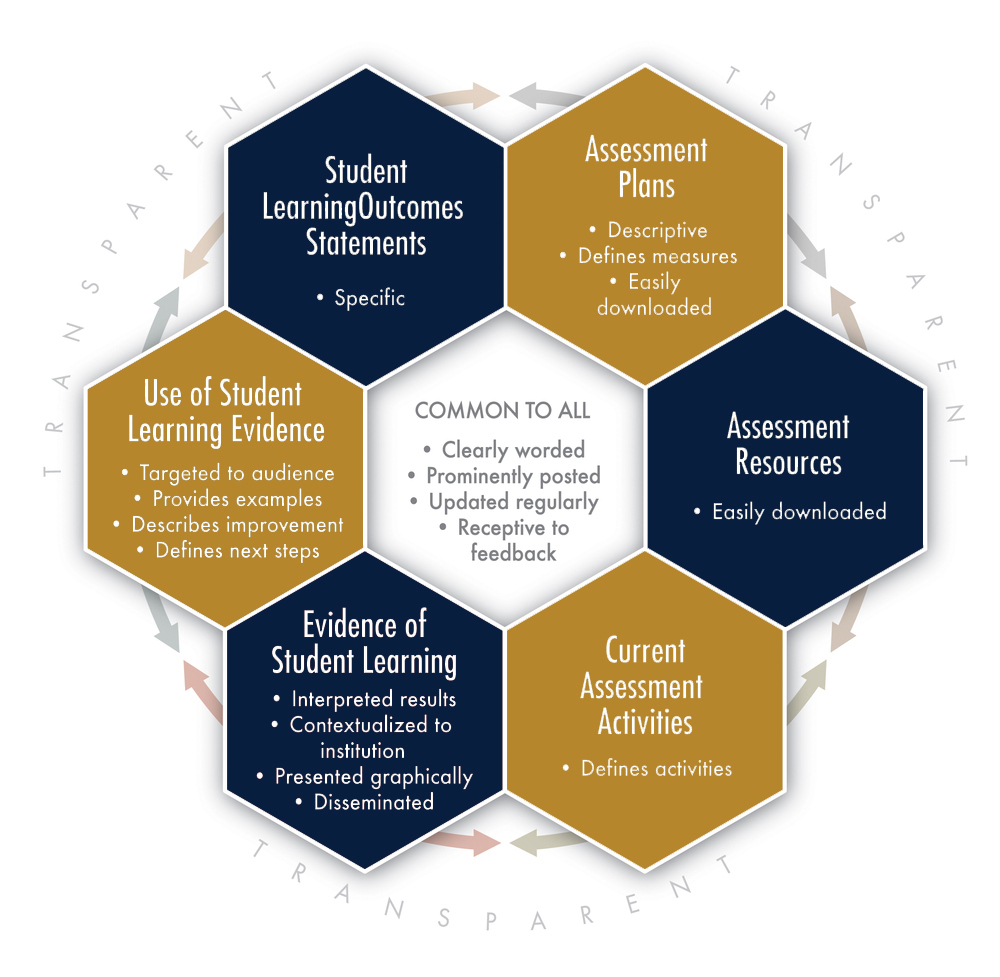FIU is using the Transparency Framework from the National Institute for Learning Outcomes Assessment (NILOA) to frame and contextualize institutional assessment practices.

Student Learning Outcomes Statements
Student learning outcomes statements clearly state the expected knowledge, skills, attitudes, competencies, and habits of mind that students are expected to acquire at an institution of higher education.
Assessment Plans
Campus plans for gathering evidence of student learning might include institution-wide or program specific approaches that convey how student learning will be assessed, the data collection tools and approaches that will be used, and the timeline for implementation.
Assessment Resources
Assessment resources encompass information or training provided to faculty and staff to help them understand, develop, implement, communicate, and use evidence of student learning.
Current Assessment Activities
Current assessment activities include information on a full range of projects and activities recently completed or currently underway to gauge student learning, make improvements or respond to accountability interests.
Evidence of Student Learning
Evidence of student learning includes results of assessment activities. This may include evidence of indirect (e.g. surveys) and direct (e.g. portfolio) student learning as well as institutional performance indicators (e.g. licensure pass rate).
Use of Student Learning Evidence
This component represents the extent to which evidence of student learning is used to identify areas where changes in policies and practices may lead to improvement, inform institutional decision-making, problem identification, planning, goal setting, faculty development, course revision, program review, and accountability or accreditation self-study.
SOURCE: National Institute for Learning Outcomes Assessment. (2011). Transparency Framework. Urbana, IL: University of Illinois and Indiana University, National Institute for Learning Outcomes Assessment (NILOA).